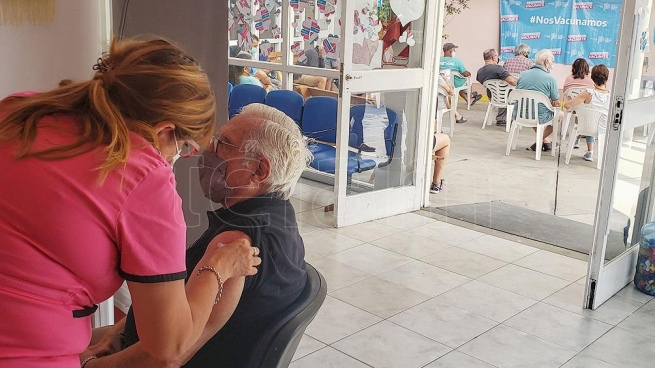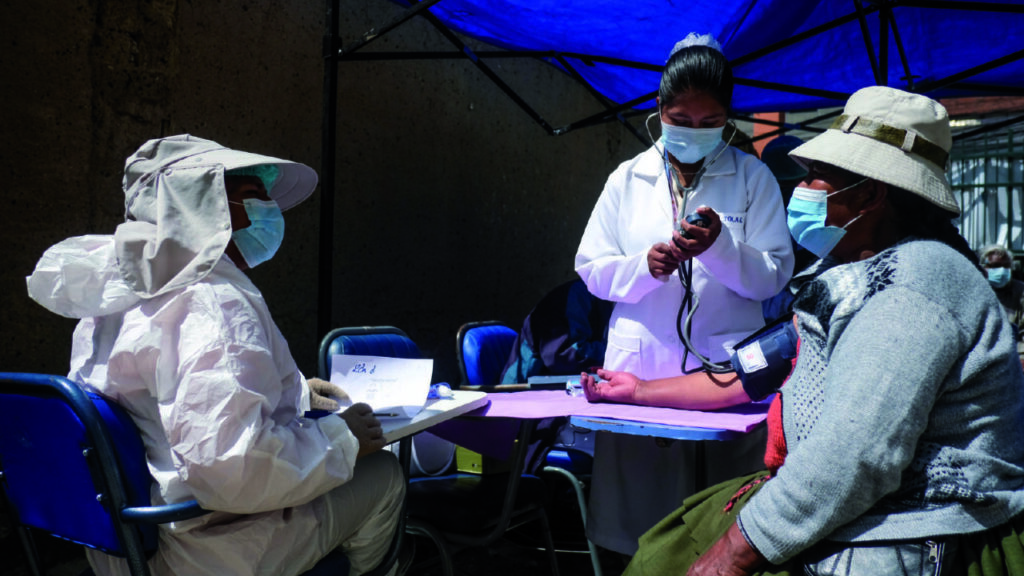The Minister of Health, Carla Vizzotti, and her peers from the 24 jurisdictions agreed this Wednesday, within the framework of the Federal Health Council (COFESA), to provide people with access to vaccination against the coronavirus outside their place of residence, during January and February, it was officially reported.
Vizzotti and his peers from the 24 jurisdictions of the country “analyzed the current epidemiological situation of an increase in the number of Covid-19 cases and agreed to facilitate access to vaccination during January and February, allowing people to get vaccinated outside their place. of residence “.
In addition, “it was defined that the minimum interval for the application of the reinforcement doses is not less than 4 months and change the logic of the tests,” indicated a statement from the Ministry of Health.
“In tourist centers it is important to be able to vaccinate those who reside in other places,” said Minister Vizzotti, and explained that “during January more than five million people complete five months of their second dose, so you have to be flexible and favor the access of the reinforcements ”.
“The Province of Buenos Aires is doing it and is vaccinating a lot on the Atlantic Coast, that reciprocity and federal work will accelerate the vaccination campaign during this time,” explained the head of the national portfolio in relation to access to vaccination against the coronavirus to non-residents, in the context of the massive movement of people during the summer season.
In this sense, the national portfolio committed to reinforcing the distribution of doses to meet this objective.
Vizzotti stressed the importance of continuing to initiate, completing schedules, and giving reinforcements to further advance the vaccination campaign against Covid-19.
“It is very encouraging that 730 thousand people over 18 years of age have started their vaccination scheme in the last 8 weeks. We are almost 85% of the population with one dose and 72% with two doses, which places us in a very advanced place of vaccination all over the world ”, he pointed out.
Likewise, during the meeting, the recommendation made by the National Immunization Commission (Conain) to homologate to no less than 4 months the minimum interval for the application of booster doses in all people over 18 years of age, with the objective of to take advantage of opportunities and speed up the vaccination campaign.
That is, any person who has completed their initial vaccination schedule more than at least 120 days ago, is in a position to receive the booster dose. The implementation of the measure will be adapted to the conditions and planning defined by the different jurisdictional plans, the Health statement added.
Regarding the epidemiological situation, Vizzotti affirmed that the Delta variant is increasingly displaced by Ómicron, with cases of, at the moment, mild or moderate severity.
“We have the expectation that with so many vaccinated people and a shorter period of transmissibility, this peak, which has been exponential and unusual, will have a much faster decline than the previous wave, also based on what we are seeing in South Africa, which was the first country where the outbreak of this new variant began ”, he assured.
He also explained that, as a consequence of the advance in vaccination, “the increase in the number of cases was decoupled from the number of deaths and hospitalizations in intensive care, although it does generate tension in the testing system.”
In this sense, the national portfolio decided to modify the algorithms in order to reduce the tension in the testing centers, which in recent days experienced a considerable increase.
It was specified that if the person has symptoms compatible with Covid-19 and had close contact with a positive case, it is not strictly necessary to perform a test to confirm the diagnosis, since, given such high viral circulation, confirmation can be established by clinical connection and epidemiological.
In the event that the person has had close contact with a confirmed case, but does not present symptoms, they must perform the corresponding isolation but testing is not indicated.
It was also reported that in the last hours the National Administration of Medicines, Food and Medical Technology (ANMAT) authorized the commercialization of four brands of self-tests that will allow a decrease in the demand for tests, and it was tested as an option that promotes self-care.
In order to meet the demand in the tests, it was reported that they are also working on the articulation with the private sector, who offered availability to expand the offer and be part of the diagnostic expansion.
In relation to the capacity of massive events in this context of an increase in the number of cases and in view of the manifest concern of some provincial health ministers, Minister Vizzotti explained that the current DNU enables jurisdictions to take the measures they consider necessary, since Targeted actions showed greater impact, and ensured the support of the national portfolio in this regard.

















